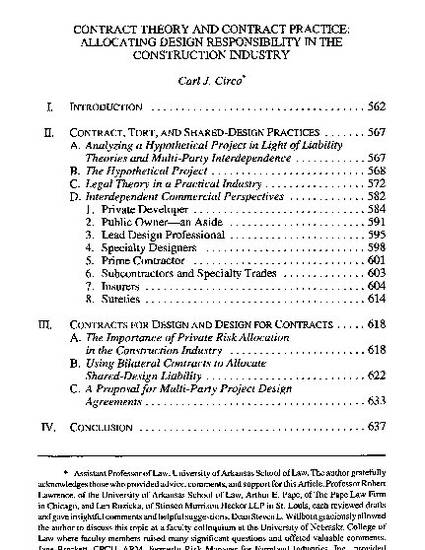
Article
Contract Theory and Contract Practice Allocating Design Responsiblity in the Construction Industry
Florida Law Review
(2006)
Abstract
How much does legal theory matter to lawyers who advise clients concerning building design and construction contracts? Theory thrives in contract literature, as philosophers and legal scholars search for justification, essence, coherence, and synthesis. Lawyers litigating contract cases also invoke and confront theory to develop a case, to attempt to persuade a court, to transform the application of the law to particular facts, or to account for the jurisprudence of a specific judge or court. But of what interest is legal theory to construction lawyers in their everyday practice?
This Article uses a current issue in construction and design contracts to explore that question. While the issue here is an inherently practical one, the analysis concludes that legal theory should matter a great deal to construction lawyers. It also muses on far-reaching consequences of legal theory important not only to the construction law bar and courts and arbitration panels deciding design liability disputes, but also to the professional and trade associations, insurers, and sureties that are the other key institutions influencing the liability environment for the construction industry. Perhaps those who address design and construction contracts without proper regard for legal theory may unwittingly tempt those institutions to abandon a contract response to commercial risk analysis in favor of a tort approach. Such abandonment, the argument concludes, could have most unfortunate jurisprudential and practical results.
Disciplines
Publication Date
Fall September 1, 2006
Citation Information
Carl J. Circo. "Contract Theory and Contract Practice Allocating Design Responsiblity in the Construction Industry" Florida Law Review (2006) Available at: http://works.bepress.com/carl_circo/20/
